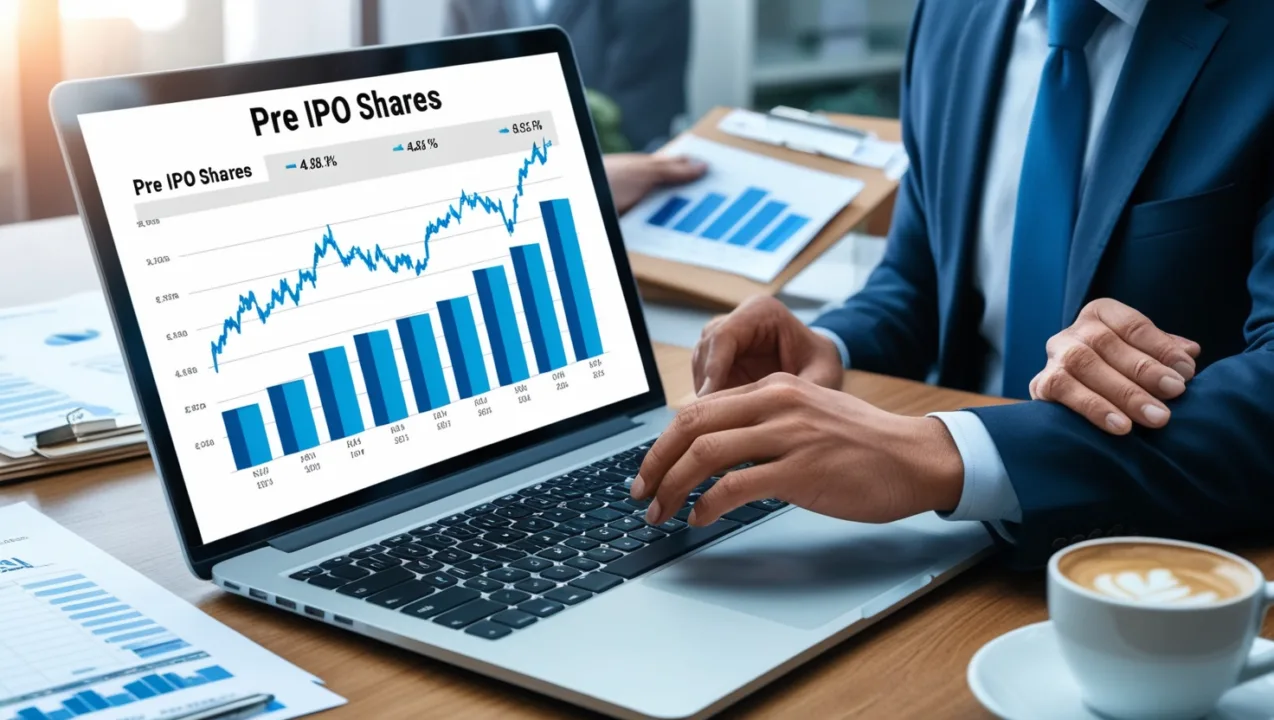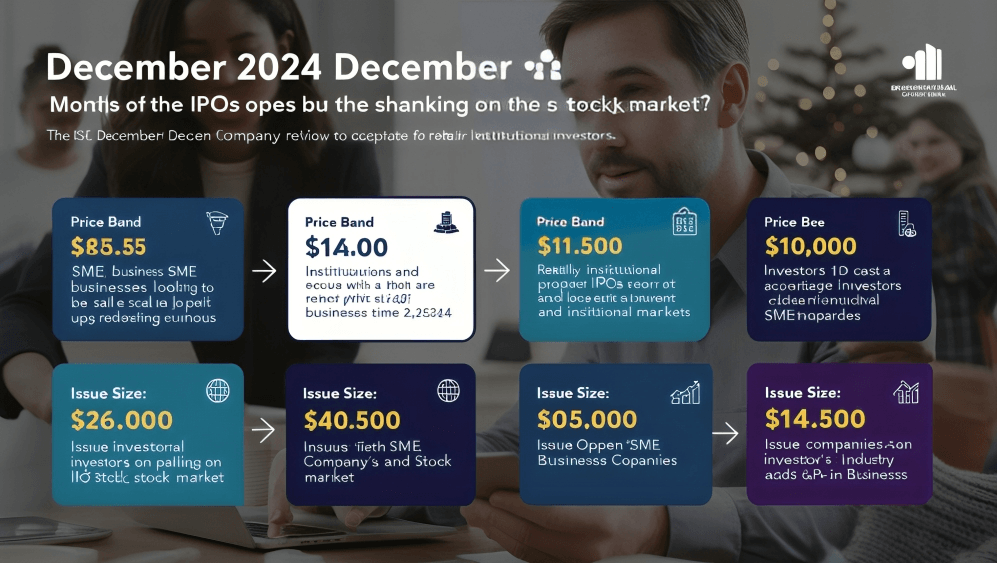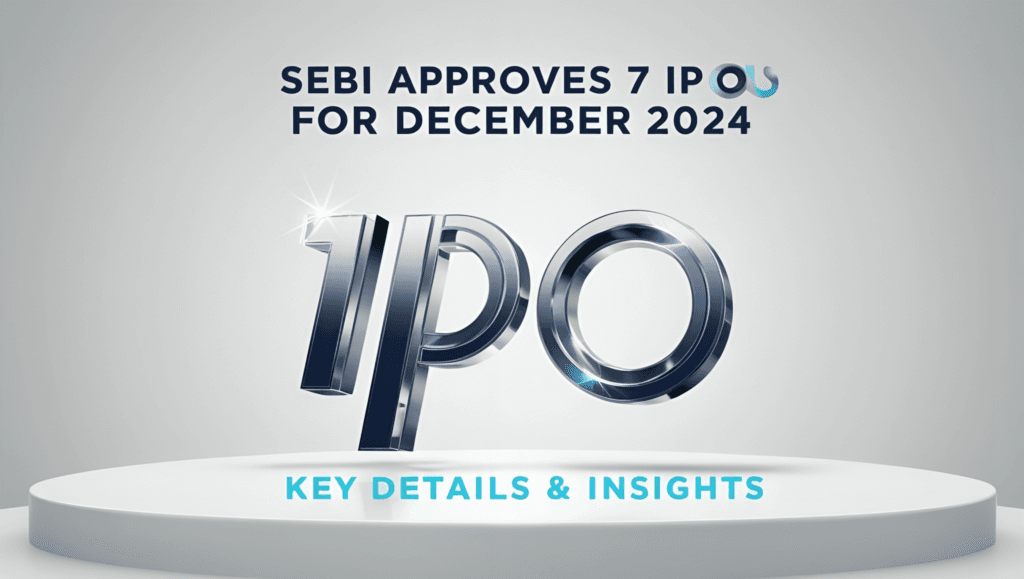Selling Pre IPO Shares: A Comprehensive Guide for Investors

This article explores the process of selling pre IPO shares, offering insights into key strategies, platforms, and benefits for investors. It covers essential considerations, market timing, and real-world examples of upcoming IPOs, helping readers navigate pre-IPO share sales confidently.
What Are Pre-IPO Shares?
Understanding Pre-IPO Shares and Their Role in the Market
Pre-IPO shares refer to stock issued by companies before their public offering. These shares are typically allocated to early investors, employees, or institutional buyers. For investors looking to capitalize on these early-stage opportunities, selling pre-IPO shares can be an option once the company prepares to list publicly.
For further understanding of pre-IPO shares, visit Investopedia’s Pre-IPO Stock Guide.
For an example of an upcoming IPO and its potential implications, check out our in-depth article on the Kraken IPO 2025: Investment Opportunity.
How Pre-IPO Shares Work and Their Value to Investors
These shares are typically offered at a discounted price compared to the expected public offering price. For those holding these stocks, selling pre-IPO shares can generate significant returns if timed correctly.
Learn more about how pre-IPO shares work in the market by reading the SEC’s IPO Overview.
When engaging in pre-IPO share sales, understanding the payment process is crucial. For a comprehensive guide on IPO payments, check out our IPOs Payment Guide: Step-by-Step Must-Follows.
Why Do Companies Offer Pre IPO Shares?
Raising Capital Through Selling Pre IPO Shares
Companies offer pre-IPO shares to raise capital in private funding rounds before they make their market debut. This capital often helps with expansion, operations, or other strategic initiatives.
To learn why companies issue pre-IPO stock, explore Inc.’s guide on pre-IPO capital Raising.
One notable example in the HR tech sector is Rippling’s IPO. To explore how companies in tech are changing the landscape of pre-IPO investing, check out our article on the Rippling IPO: Game-Changing Opportunity in HR Tech.
The Appeal of Selling Pre IPO Shares for Early Investors
For early investors, the main benefit of selling pre-IPO shares is the ability to realize gains from their initial investment as the company prepares to go public. With the company’s valuation increasing, selling these shares can be a profitable exit strategy.
For a deeper dive into the advantages of selling pre-IPO shares, check out Forbes’ case studies on early-stage IPO exits.
The Process of Selling Pre IPO Shares
The Private Placement Process for Selling Pre IPO Shares
Selling pre-IPO shares typically occurs through private placements, where shares are sold to accredited investors. The process requires careful consideration of the market and company performance.
To explore the private placement process in more detail, visit platforms like SharesPost and EquityZen.
Another example of a highly anticipated IPO is Reddit’s IPO. To dive deeper into this exciting market opportunity, read more about it in our Reddit IPO Filetype PDF: Game Changer – Read Now.”
Secondary Marketplaces for Selling Pre IPO Shares
Once a company is well-established, secondary marketplaces become a viable option for selling pre-IPO shares. These platforms allow private investors to sell shares to accredited buyers before the company goes public.
Learn more about secondary marketplaces at Forge Global.
Risks and Considerations When Selling Pre IPO Shares
Liquidity Risks of Selling Pre IPO Shares
One significant risk of selling pre-IPO shares is the limited liquidity in private markets. Unlike publicly traded stocks, there is no guarantee of finding a buyer quickly, and prices may fluctuate.
For a deeper understanding of liquidity challenges in private equity, check out FINRA’s guide on private placements.
Regulatory and Market Risks When Selling Pre IPO Shares
Selling pre-IPO shares may involve legal restrictions, such as lock-up periods or SEC regulations that prevent immediate sale after a company’s IPO. It’s essential to navigate these complexities carefully to avoid legal pitfalls.
Visit the SEC’s IPO page to better understand these regulatory restrictions.
What Are the Benefits of Selling Pre IPO Shares?
Profit Potential from Selling Pre IPO Shares
Investors who purchase pre-IPO shares at a discounted price can sell them for a profit once the company goes public. This potential for significant returns makes selling pre-IPO shares an attractive option for early investors.
Read about how early investors have profited from pre-IPO shares by reviewing case studies on CNBC’s IPO Coverage.
For a closer look at how fintech companies like Betterment are offering exciting IPO opportunities, discover 5 Reasons to Invest in Betterment IPO 2025 in our dedicated article here: Betterment IPO 2025: 5 Reasons to Invest.
Portfolio Diversification and Selling Pre IPO Shares
Selling pre-IPO shares can also help diversify an investment portfolio. By liquidating early-stage stocks, investors free up capital to explore more diversified investment opportunities.
For insights on diversification, visit Investopedia’s Portfolio Diversification Guide.
How to Find Buyers for Selling Pre IPO Shares
Brokerages and Online Platforms for Selling Pre IPO Shares
To sell pre IPO shares, investors can turn to online brokerage platforms that specialize in private equity transactions. These platforms provide a secure way to sell to accredited investors.
Explore services like EquityZen for a secure and trusted marketplace for selling pre-IPO shares.
Secondary Marketplaces for Pre IPO Share Sales
Another option for finding buyers is through secondary marketplaces such as Forge Global. These platforms connect sellers and buyers, allowing for smoother transactions of pre-IPO shares.
Legal and Tax Implications of Selling Pre-IPO Shares
Legal Considerations When Selling Pre-IPO Shares
Before selling pre-IPO shares, investors should ensure that they are not violating any lock-up periods or regulations imposed by the SEC or the company itself.
Visit Nolo’s Legal Encyclopedia for legal insights into private placement rules.
Tax Implications of Selling Pre-IPO Shares
Selling pre-IPO shares can have tax implications, especially if the shares are sold for a profit. These sales may be subject to capital gains taxes depending on the holding period and other factors.
For tax advice related to selling pre-IPO shares, refer to the IRS Capital Gains Tax Guide.
Conclusion: Should You Consider Selling Pre-IPO Shares?
Weighing the Pros and Cons of Selling Pre-IPO Shares
While selling pre-IPO shares can be a highly profitable strategy, it carries risks such as liquidity issues, legal restrictions, and market volatility. It’s essential for investors to carefully assess the timing and their individual financial goals before proceeding.
Making an Informed Decision
By understanding the nuances of selling pre-IPO shares and consulting the right resources, investors can make informed decisions that align with their investment strategy.
For additional resources, be sure to review the SEC’s IPO Portal and other educational materials from trusted financial platforms.
FAQ
Can I sell my pre-IPO shares?
Yes, you can sell pre-IPO shares, but it typically depends on the company’s lock-up period and secondary market options. Pre-IPO shares are often sold through private transactions or secondary markets after the company has issued them.
Can founders sell shares before IPO?
Yes, founders can sell shares before an IPO, but often there are restrictions on how and when they can do so. This is usually controlled by the company’s policies and the lock-up period to ensure stability in the share price leading up to the IPO.
Can pre-IPO shares be sold on listing day?
In most cases, pre-IPO shares cannot be sold immediately on the listing day due to the lock-up period imposed by the company. The lock-up period can range from 90 to 180 days after the IPO, during which the initial investors and insiders cannot sell their shares.
क्या संस्थापक आईपीओ से पहले शेयर बेच सकते हैं?
हां, संस्थापक आईपीओ से पहले अपने शेयर बेच सकते हैं, लेकिन इसमें कुछ शर्तें और सीमाएँ होती हैं। यह आम तौर पर कंपनी की नीतियों और लॉक-अप अवधि पर निर्भर करता है, ताकि आईपीओ के बाद शेयर की कीमत में स्थिरता बनी रहे।









